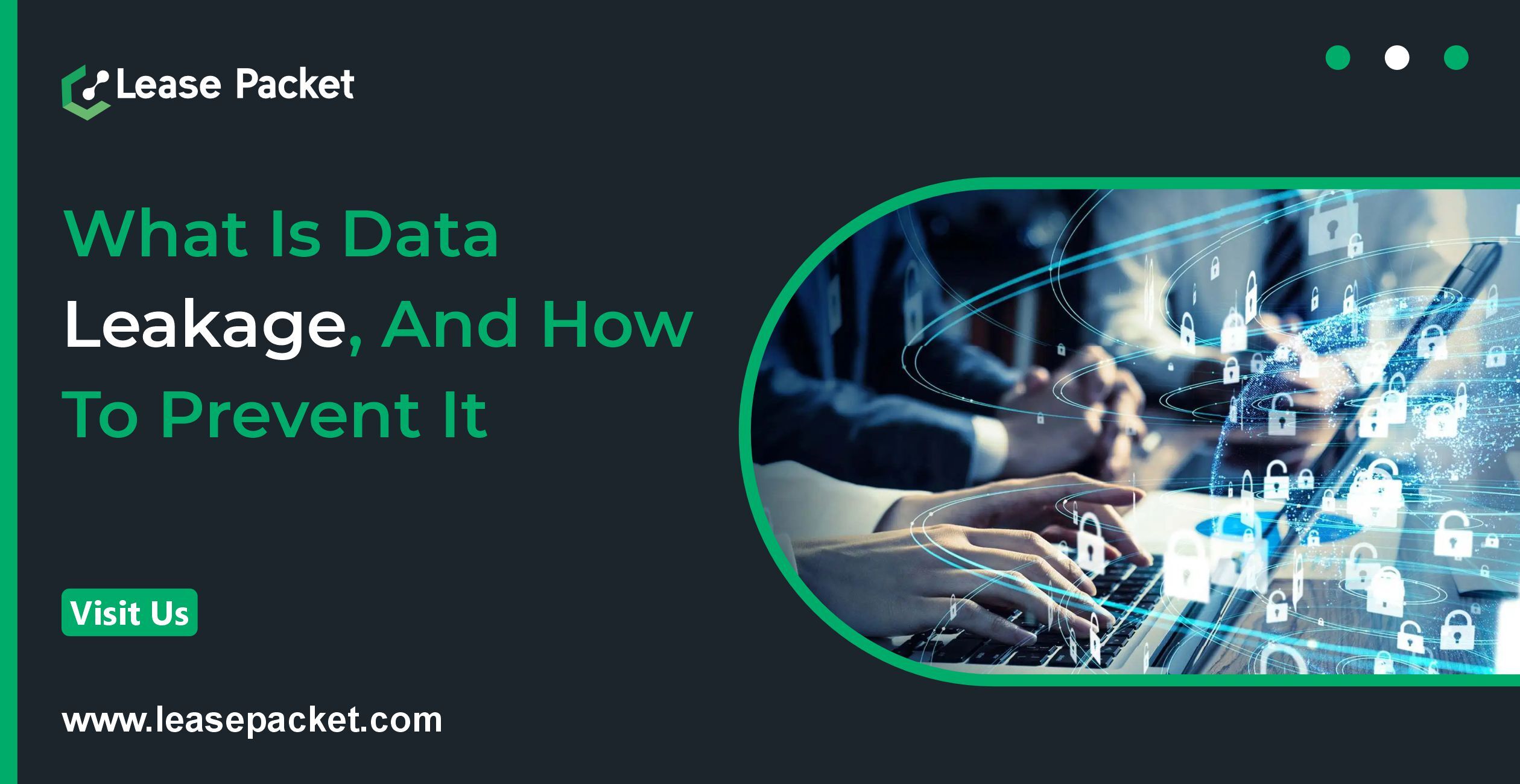Data Leakage is one of the considerable and major concerns for both individuals and businesses. Data leakage is called when sensitive, confidential, or private data has been simply released to an unauthorized person or hackers. This can lead to accidental mishandling of that sensitive information. Whatever the reason for it, it is sure to bring in significant loss. It tarnishes the reputation. In the data-driven world, it is important to have proper knowledge about data leakage and how to prevent it. In this blog, we will cover what Data Leakage is, what are common causes of data leakage are, and how to prevent this.
What is the Meaning of Data Leakage?
Data leakage means some unauthorized transmission of data from the internal environment to an external destination or recipient. It could be intellectual data of customers, financial records, or some other sensitive piece of information. Data leakage can be done through multiple channels such as e-mails, cloud storage, USB drives, or even through malware.
What Causes Data Leakage?
Here are the commonly related causes of data leakage:
Human Factor
Sometimes data leakage occurs due to human mistakes, such as sending an email with sensitive data to the wrong email addresses. Experts rank mishandling data and uploading critical files to unsecured cloud services high on the list of causes of data leakage. Even the simplest human mistakes of this type can result in highly vulnerable sensitive information.
Insider Threats
Internal employees, contractors, or other insiders might leak information either accidentally or intentionally. Reasons could be malicious intent, carelessness, or even complete ignorance about security policies.
Phishing and Social Engineering
Most cyber attackers try to force people into compromising confidential information like credentials, passwords, etc. Financial information for their use in accessing sensitive data by sending phishing emails or using some other form of social engineering.
Poor Security Controls
Poorly implemented security controls including no encryption, poor access management, and poor password usage, with operations on outdated software, make the attacker’s job in accessing and exfiltrating data that much easier.
Unsecured Endpoints
Poorly secured laptops, smartphones, and USB drives get lost, stolen, or otherwise compromised. They can cause data leakage. Endpoint security plays a very important role in ensuring that data leakage does not take place via this route.
Poorly Configured Systems
Cloud storage with poorly set access or databases left open to the internet are other causes for leakage. Misconfigurations remain the most frequent entry points of attackers.
Vulnerabilities in Third-Party Systems
Engaging third-party vendors or partners who do not hold rigid standards invites risks. A breach within the third-party vendor would translate into a breach of your data too.
Malware and Ransomware
Spyware malware, keyloggers, or ransomware malware that infiltrates through systems for exfiltration of these types of attacks emanate either through phishing or through the exploitation of security vulnerabilities.
Cloud Storage Accidental Sharing
In negligence around cloud storage, links get sent out without restriction, and access controls not imposed result in unauthorized access to privileged information.
Negligence of Data Disposal
This may involve not wiping data off the device in a secure manner or even failing to shred hard copies of documents that give access to information by other entities.
We will correct such causes and minimize the chances of leakage through comprehensive security measures, staff training, and the implementation of DLP tools.
How attackers may use Data Leakage
The consequences of data leakage can come in very serious forms, which include but are not limited to the following:
- Financial Losses: Businesses may face fines, lawsuits, and loss of revenue due to data leakage.
- Reputational Damage: The trust of customers and business partners will might be lost.
- Compliance Violations: Data leaks could amount to non-compliance under the auspices of regulations such as GDPR, CCPA, or HIPAA.
- Operational Disruptions: Data leakages can cause disruptions in business processes, which are very costly and time-consuming.
How to Prevent Data Leakage?
Enforce Strict Security Policy
Define strict rules and policies concerning data processing and its security. Keep updating those policies with time as new types of threats start emerging.
Training the Employees
Periodic training of employees on policies of data protection, phishing, and protection of classified information.
Deployment of DLP Solutions
DLP solutions monitor and block the flow of data over your network to prevent sensitive information from leaving the organization accidentally.
Encryption of sensitive data
Even if such data gets hijacked, it would be unreadable without the correct decryption key.
Limit Access to Sensitive Information
Access to sensitive data should only be provided on the principle of least privilege, that is when very important for certain work.
Network Monitoring
Your network needs periodic monitoring for something suspicious that might indicate a data breach. One may raise suspicion for very large data transfers or access from unknown locations.
Secure Endpoints
All the devices accessing your network should have updated antivirus software, firewalls, and regular security patches.
Multi-Factor Authentication
The MFA application can add one more layer of security for which access will not be granted even when the login credentials are compromised.
Conclusion
Data leakage usually tends to be a nightmare for organizations, but the causes identified and some precautions taken have helped an organization keep sensitive data secure. To preserve data security, you should update security practices, educate employees, and use appropriate tools. After all, proactive prevention is easier than cleaning up after a leak of data.
Secure your business against data leakage with our dedicated servers, with top-notch security, performance, and complete control over your data environment. Advanced encryption, DDoS protection, and isolated resources on our servers ensure we always safeguard your data against unauthorized access and cyber threats. Keep your data secure with LeasePacket, and focus on growing your business with peace of mind.


